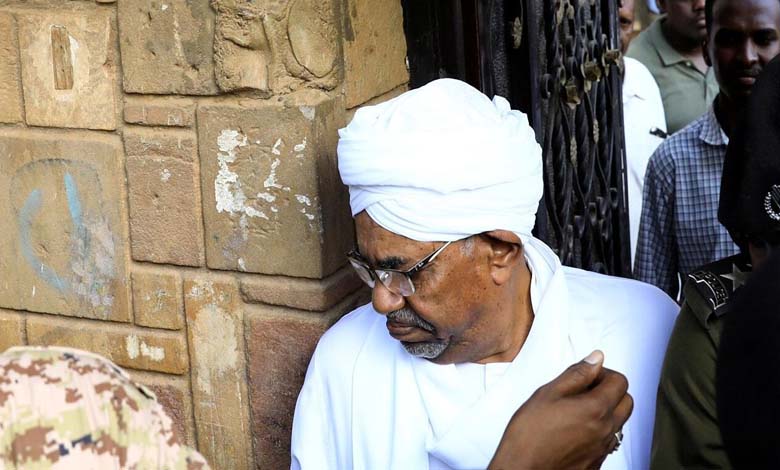Appointing Al-Bashir’s Lawyer as Justice Minister Signals Return of Former Regime Figures

The appointment of Abdallah Darrf is seen as part of General Burhan’s strategy to win the loyalty of Islamist factions and key figures from Bashir’s era amid the conflict with the Rapid Support Forces.
-
From Al-Bashir to Al-Burhan: The Role of the “Kizan” in Sudan’s War
-
From Al-Bashir to Al-Burhan: The Muslim Brotherhood Continues to Wreck Sudan
The recent decision by Sudan’s newly appointed Prime Minister, Kamal Idris, to name Abdallah Darrf as Minister of Justice has sparked a storm of political and public criticism, raising serious questions about the true intentions of the transitional government, particularly regarding its ties with figures from the former regime ousted by a popular revolution.
Darrf, a well-known member of the former ruling National Congress Party during Omar al-Bashir’s presidency, previously held a key role in the legal defense team for Bashir and other regime figures during their post-revolution trials. His appointment to a sensitive judicial position is widely interpreted as a clear move to reinstate elements of the old regime, triggering widespread concern among Sudanese citizens who continue to bear the cost of the revolution.
-
Amidst the Crimes of the Muslim Brotherhood in Sudan… The ICC Demands the Disclosure of Bashir and Haroun’s Whereabouts
-
Escalation of Calls for Arming in Sudan… What’s the Relationship with the al-Bashir Regime?
Analysts argue that this move cannot be separated from General Abdel Fattah al-Burhan’s attempt to rally Islamist forces and former regime elites in a bid to secure military dominance in the face of the ongoing war with the Rapid Support Forces (RSF). It’s part of a calculated political maneuver aimed at maintaining military power, even at the expense of public demands and the revolutionary aspirations of the Sudanese people.
Opponents view the appointment as a betrayal of the sacrifices made by the Sudanese people, who overthrew Bashir’s regime after years of oppression and corruption. They argue that no transitional government with a legitimate mandate can restore symbols of repression, especially in a crucial ministry such as justice.
-
Al-Bashir and Colleagues’ Escape… The Muslim Brotherhood Attempts to Transfer Them to Another Hospital
-
Al-Bashir’s supporters are participating in the battles alongside the Sudanese army
Critics further warn that this decision undermines the credibility of transitional justice, exposing it to freezing or political interference.
The timing of the decision is also highly sensitive. It comes amid a prolonged conflict between the army and the RSF, whose leader, Mohamed Hamdan Dagalo (Hemedti), has repeatedly accused Burhan of forming alliances with Islamist elements and former regime figures to reclaim control over the country.
-
War in Sudan: Al-Burhan seeks assistance from former Military leaders of the al-Bashir regime
-
Sudan: The prison for the first personality from Former Bashir Regime
These accusations now appear increasingly substantiated, as a series of appointments indicate a reintegration of old regime loyalists, reinforcing the RSF’s narrative of a self-serving alliance between the military and political Islamists.
Reports have surfaced of undisclosed meetings between military figures and former Bashir-era leaders, both domestically and through regional intermediaries, aimed at forming a new political front to support the army in its fight against the RSF.
-
Court of Omar al-Bashir suspended to October 6
-
Power and Influence Struggles: Infighting Rocks Sudanese Army Alliances
At the same time, Kamal Idris seems to have succumbed to pressure from armed movements aligned with the army, retaining their ministers in the new government, notably Jibril Ibrahim, head of the Justice and Equality Movement, who remains Minister of Finance despite intense criticism over his performance.
Observers believe that Idris is cornered between the military establishment and powerful armed factions, which undermines his credibility as a transitional prime minister tasked with steering the country toward civilian rule.
-
With a Major Arms Deal for the Sudanese Army.. Brotherhood Leader Salah Gosh Returns from the Shadows
-
Sudanese Army Soldiers and Islamist Militias Accused of Looting Homes and Assaulting Civilians
To the war-weary Sudanese public, the appointment of Darrf is seen as a step backward, an attempt to bury the revolution, and a signal of reconciliation with the old regime, without acknowledging its crimes or committing to justice.
Ultimately, this appointment reflects the fundamental dilemma of Sudan’s transitional authority—caught between appeasing entrenched power centers and its inability to build trust with the people or offer a unifying national vision.
In the absence of political consensus, continued warfare, and no clear path to comprehensive national reconciliation, Sudan appears to be slipping back into the pre-revolutionary system, albeit in a far more fragile and fragmented form.











